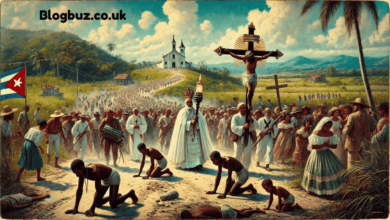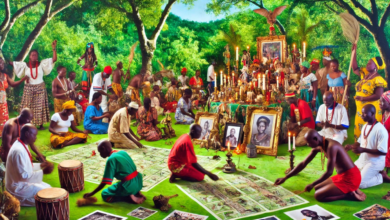Suffix with Beatle or Wrestle: Understanding the Origins and Cultural Impact of -Mania

Attaching prefixes and suffixes to a root word creates endless possibilities for forming new meanings. One such suffix,—mania, has found a notable place in popular culture, mainly when linked with iconic terms like Beatle and wrestle. The suffix transforms these words into powerful cultural phenomena: Beatlemania and Wrestlemania. In this article, we’ll delve deep into the significance of these terms, their historical origins, and how they’ve shaped modern pop culture.
What Does the Suffix -Mania Mean?
The suffix -mania comes from the Greek word mania, meaning madness or frenzy. In English, it’s often used to describe intense enthusiasm, obsession, or excitement toward something. Over time, -mania has been attached to numerous words, reflecting societal trends and collective cultural experiences. Regarding Beatle and wrestle, the addition of -mania signifies not just casual interest but widespread, passionate devotion.
Beatlemania: A Cultural Revolution
Beatlemania is one of the most famous examples of -mania used in pop culture. It was coined in the 1960s to describe the unprecedented fan frenzy surrounding The Beatles, the British rock band that took the world by storm. But Beatlemania was more than just a trend—a cultural revolution.
The Rise of The Beatles
Formed in Liverpool, England, in 1960, The Beatles—comprised of John Lennon, Paul McCartney, George Harrison, and Ringo Starr—became a global sensation. Their music, characterized by innovative songwriting and a blend of rock, pop, and folk influences, captured the hearts of millions. From their early hits like “I Want to Hold Your Hand” to their more experimental albums like Sgt. Pepper’s Lonely Hearts Club Band, The Beatles pushed musical boundaries and redefined what it meant to be a pop star.
The Impact of Beatlemania
Beatlemania began in the U.K. in 1963 and quickly spread across the globe. Fans, particularly teenage girls, went wild at the sight of the band, screaming and fainting during their performances. By 1964, Beatlemania had reached the United States. The Beatles’ appearance on The Ed Sullivan Show drew an audience of over 73 million people—roughly one-third of the U.S. population.
The craze surrounding The Beatles wasn’t just about their music. It was a sociocultural movement that reflected the changing attitudes of the 1960s. Beatlemania symbolized youthful rebellion, freedom, and the emergence of the teenager as a powerful cultural force. The term “Beatlemania” encapsulated the enthusiasm surrounding the band and the societal changes happening at the time.
WrestleMania: The Pinnacle of Sports Entertainment
While Beatlemania was rooted in the music industry, “WrestleMania” emerged in a different arena: professional wrestling. Created by World Wrestling Entertainment (WWE), WrestleMania is an annual event synonymous with spectacle, entertainment, and fan devotion.
The Birth of WrestleMania
WrestleMania was conceived by WWE Chairman Vince McMahon in 1985 to bring professional wrestling to the mainstream. McMahon envisioned an event blending wrestling with celebrity appearances, musical performances, and larger-than-life storylines. The first WrestleMania occurred on March 31, 1985, at Madison Square Garden in New York City, featuring iconic wrestlers such as Hulk Hogan, André the Giant, and Rowdy Roddy Piper.
The event was a massive success, drawing over 19,000 fans to the venue and over a million viewers via closed-circuit television. WrestleMania marked a turning point for professional wrestling, elevating it from a niche sport to a form of mainstream entertainment.
The Legacy of WrestleMania
Since its inception, WrestleMania has grown into one of the most significant annual events in sports entertainment. It has featured some of the most memorable matches in wrestling history, including Hulk Hogan vs. André the Giant at WrestleMania III and Shawn Michaels vs. The Undertaker at WrestleMania XXV.
The success of WrestleMania has spawned numerous other wrestling events, but they have yet to achieve the same level of cultural impact. WrestleMania has become a spectacle symbol, drawing in fans worldwide who flock to see their favourite wrestlers perform on the grandest stage. The term WrestleMania has come to represent not just a wrestling event but the pinnacle of sports entertainment itself.
Why the Suffix -Mania Works So Well
The use of -mania in both Beatlemania and WrestleMania underscores the cultural significance of these phenomena. The suffix evokes images of wild enthusiasm, collective excitement, and a sense of community among fans. Whether it’s the screaming fans of The Beatles or the passionate crowd at a WrestleMania event, -mania captures the essence of fan devotion.
The Psychology of Fanaticism
The suffix -mania also hints at the psychology behind fandom. Psychologists have long studied the phenomenon of collective behaviour, particularly in the context of large groups of people who share a common interest. Fanaticism can create a sense of identity and belonging for a band or a sport. For fans, being part of Beatlemania or WrestleMania isn’t just about enjoying music or wrestling—it’s about being part of something larger than themselves.
In both cases, -mania symbolizes a cultural moment when passion and excitement reach a fever pitch. Fans are no longer passive consumers; they become active participants in the phenomenon, shaping its legacy for years.
Other Famous -Mania Terms
While Beatlemania and WrestleMania are perhaps the most well-known examples of -mania in pop culture, they’re far from the only ones. Over the years, the suffix has been attached to a variety of words to describe intense fandom or obsession:
- Lisztomania: The fan frenzy surrounding the composer Franz Liszt in the 19th century.
- Linsanity: The media and fan excitement surrounding basketball player Jeremy Lin’s breakout performances in 2012.
- Pottermania: The widespread enthusiasm for the Harry Potter book and film series.
These examples show that -mania continues to be a powerful way to describe cultural phenomena that capture the public’s imagination.
The Enduring Legacy of -Mania
The suffix -mania has transcended its linguistic roots to become a cultural symbol of collective excitement. Whether it’s the revolutionary Beatlemania of the 1960s or the ongoing spectacle of WrestleMania, -mania represents the power of fandom and how popular culture can unite people across generations.
In a world where trends come and go, the—mania suffix has stood the test of time, adapting to new cultural moments and continuing to capture the essence of fan devotion. As long as there are passionate fans, new forms of—mania will always be waiting to emerge.
Conclusion
When attached to words like Beatle and wrestle, the suffix mania doesn’t just describe events or people; it reflects cultural movements and the psychology of fandom. Beatlemania marked a turning point in music history, embodying the youth culture of the 1960s, while WrestleMania revolutionized sports entertainment, creating a legacy that still resonates today. Together, these terms show how a simple suffix can encapsulate the power of popular culture and the enduring excitement of shared experiences.
FAQs on Suffix with Beatle or Wrestle
What is the meaning of the suffix -mania?
The suffix mania comes from the Greek word mania, which means madness or frenzy. In modern English, it is used to describe extreme enthusiasm, obsession, or widespread excitement about something.
What is Beatlemania, and why was it so significant?
Beatlemania refers to the intense fan frenzy surrounding The Beatles in the 1960s. It was significant because it marked a cultural revolution, symbolizing youth rebellion, freedom, and the emergence of the teenager as a powerful cultural force. It went beyond music, influencing fashion, social movements, and the global pop culture landscape.
What is WrestleMania, and how did it change professional wrestling?
WrestleMania is an annual event created by WWE in 1985. It combines professional wrestling with celebrity appearances and larger-than-life storylines. WrestleMania revolutionized professional wrestling by bringing it into mainstream entertainment, creating a global fanbase, and elevating it from a niche sport to a spectacle of sports entertainment.
How does the suffix -mania capture fan enthusiasm?
The suffix mania encapsulates the wild enthusiasm and fan devotion surrounding cultural phenomena. It signifies that the excitement and interest in something—whether it’s a band like The Beatles or an event like WrestleMania—go beyond average fandom and become a widespread, almost feverish craze.
Are there other examples of -mania in popular culture?
Yes, several other examples of -mania exist in popular culture. Some famous ones include Lisztomania (fan frenzy surrounding composer Franz Liszt), Linsanity (excitement over basketball player Jeremy Lin’s breakout performances in 2012), and Pottermania (widespread enthusiasm for the Harry Potter series).
You May Also Read: Understanding the Tree of Life: A Symbol of Unity and Growth in Art and Culture




